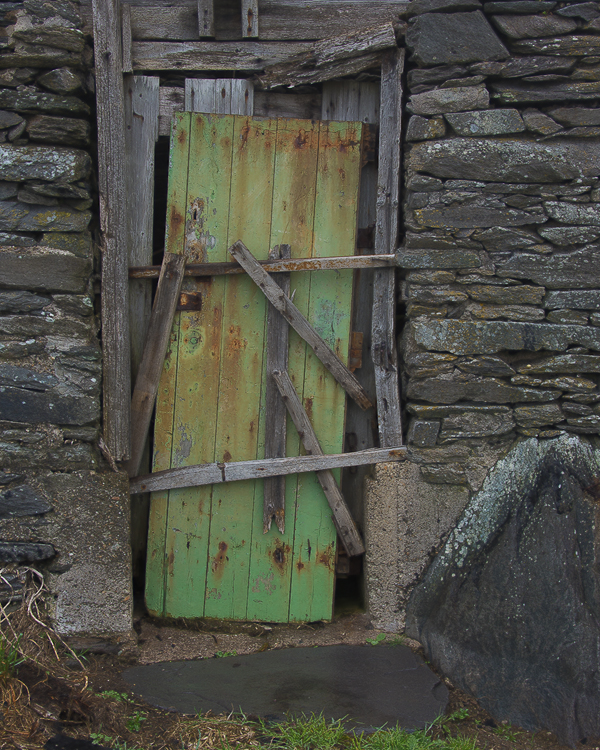
| Entry Page | About this Website | Ray Rasmussen's Homepage | Next Page -> |
Poetry & Wabi-Sabi
Whenever I walk the dry, sand washes of Utah's canyon country or Ontario's forests in winter under a cover of snow, I leave footprints. On a windy day or after a fresh snow, the footprints are covered over and the washes and forest paths are returned to a pristine state, sans humans, sans me. It's as if I had never been there in spite of my memories of having been. It's in this sense that I connect with Machado's didactic poem. All that exists are the footprints I am leaving right now, today. About the Image on the Right Two years ago, I visited Ireland and was taken not only by the old castles and forts, but by the remnants of buildings left behind during the famine when so many Irish died or emigrated. For years, this was the doorway to a simple residence and likely housed generations of an Irish family. I can't easily separate the attractiveness of the weathered stone and wood from my feelings about the famine and its causes. They go together just as a ship and the sea together create a wake that is still turbulent, that hasn't yet disappeared. While there was no beauty in the famine, the horrific event that drove these humans from their homes and homeplace, it seems ironic that some beauty remains in that which was left behind, in their footprint, if you will. The Great Famine (Irish: an Gorta Mór) was a period of mass starvation, disease, and emigration in Ireland between 1845 and 1852. More about the biological and political causes of the famine can be read about in a variety of Internet websites, including Great Famine: Ireland on Wikipedia. |
